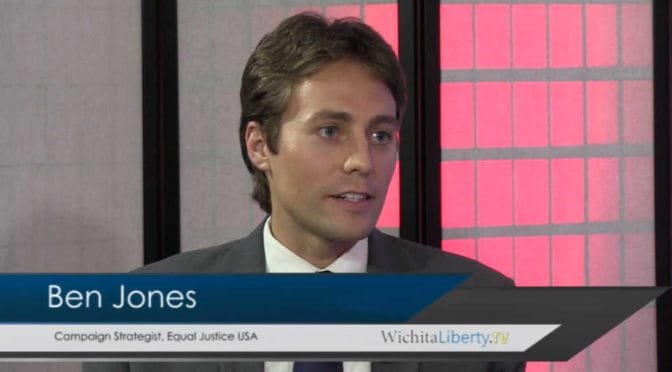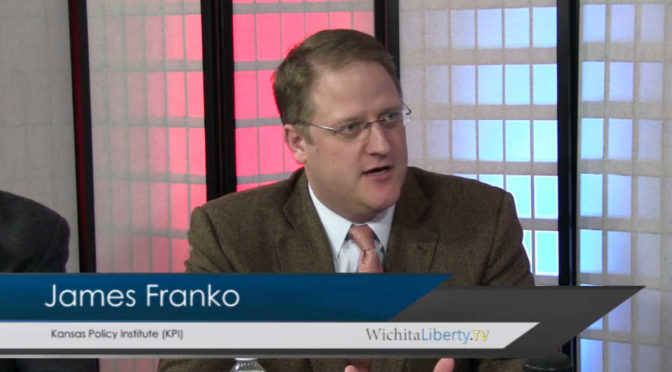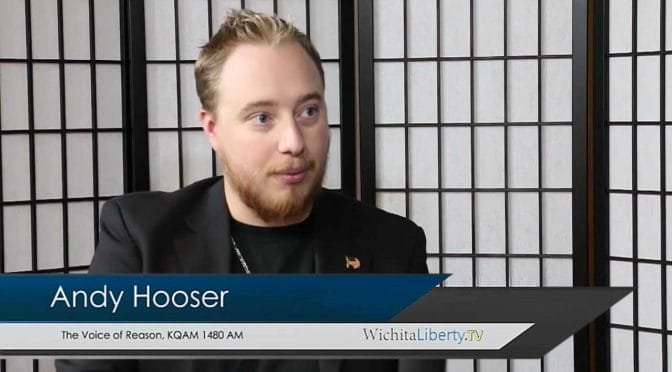By Karl Peterjohn
The budget deadlock has begun at the Kansas statehouse. The legislature cannot leave Topeka until they have approved the next biennial state budget that will begin July 1. Usually, this includes the governor’s signature on that legislation. That might not happen this year. That’s the issue.
Governor Brownback is not willing to fund a multi-year, multi-billion spending bill demanded by the liberal legislative majorities in both houses. Earlier this year he vetoed a record-breaking income tax hike scheme. So far, the governor has been successful in having his vetoes sustained.
The pressure is going to be applied for the governor’s fiscally responsible Republican allies opposed to income tax hikes.
The powerful government employee spending lobbies, headed by arguably, the most powerful lobby in this state, the KNEA teachers’ union, that spending priorities for the reliably liberal Democrats in the legislature along with a large number of other self-described, “progressives,” or “moderates,” big spending Republicans now hold sizable majorities in both houses of the Kansas legislature. However, the bi-partisan spending factions are short of the two-thirds majorities required to override Governor Brownback’s repeated vetoes. The spending lobbies have come close, and did override the governor’s pass a record-breaking income tax hike proposal in the Kansas house, but that override effort ultimately failed by three votes in the senate.
The other powerful spending lobbies among the road contractors, hospitals, and the most powerful appointed body: ethically flawed and disciplined Chief Justice of the Kansas Supreme Court, Lawton Nuss, and his fellow band of black-robed lawyers on the Kansas Supreme Court continue to try and force massive state spending hikes. Several members of this court, including Nuss, represented school districts and school finance litigation issues before joining the court.
Massive tax hikes will be required to fund this spending spree. Spending estimates indicate the increases proposed would be $2.25 billion over five years according to State Representative John Whitmer. Expanding Obamacare under the guise of Medicaid expansion could be even more expensive after the first few years.
What is different with earlier Kansas budget battles besides another zero on the cost? In this digital age we are in, everything seems to have moved digitally into a win/lose, up/down, on/off configuration.
The lawyers on Kansas’ top court with their school funding edicts, will all be providing pressure and using the leftstream Kansas news media to try and push a handful of Republican legislators to shift their votes, so everyone can go home with a huge income tax hike. Sadly, this destructive tax hike is unlikely to be successful in funding all of the proposed state spending proposals.
This is the big spenders’ dream scenario for the next state budget.
The scenario for fiscally responsible legislators and Governor Brownback is less clear. In the analog days of the 20th century, when people looked for win-win, instead of zero-sum games where every winner means there must be a loser, compromise was the answer.
To his credit, Governor Brownback has expressed a willingness to compromise. Brownback has supported and signed smaller excise tax hike bills in recent years. He continues to be blasted by liberal media critics in the editorial pages across the state. These tax hikes tried to reach a legislative compromise that allowed a continued growth in state spending. This spending growth was being driven by the perpetual school finance lawsuits.
There is another solution if the legislative deadlock continues, and there is a recent and nearby example for Kansas elected officials to consider: let the people decide. The Kansas Constitution has a provision that, “…all political power in this state is inherent in the people.” This is in the Kansas Constitution’s Bill of Rights.
How would empowering Kansans work?
In 2016, in our neighboring state to the south, Oklahoma, the state spending lobbies convinced the legislature to place a one cent sales tax hike on the statewide ballot. In November 2016 Oklahoma voters decided the fate of this sales tax hike. It was rejected by the voters.
A compromise between Governor Brownback and his fiscally conservative GOP legislative allies on one side could be reached with the larger number of Democrat and Republican tax hike advocates in the legislature using this “let the people decide,“ approach. Kansas taxpayers need to have a say in the massive new spending schemes appearing at the statehouse.
The tax hike advocates can place their proposal for raising state taxes/spending on either the August or preferably the November 2017 election ballot where a statewide referendum could be held. Both sides could make their case to voters. All political power is inherent in the people, and letting the voters decide would certainly be preferable to having appointed lawyers in black robes setting state fiscal policy with big-spending legislators as their willing accomplices.
Karl Peterjohn is a former journalist and served two terms as a Sedgwick County commissioner between 2009-17. He advocated on behalf of Kansas taxpayers as the executive director of the Kansas Taxpayers Network between 1992-2009.









